Find Help
More Items From Ergsy search
-
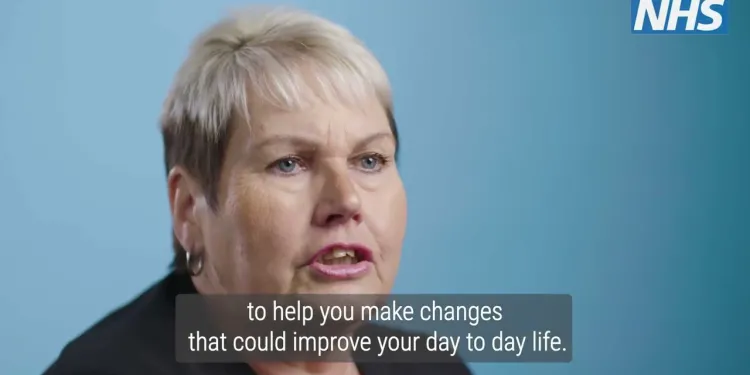
Social Prescribing Link Workers are part of new health and wellbeing services in NHS surgeries
Relevance: 100%
-
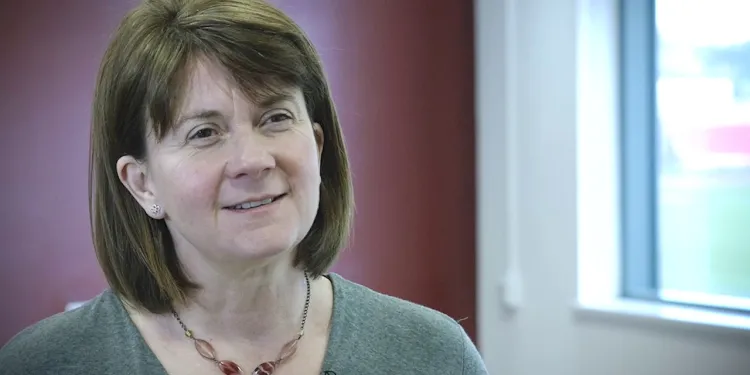
Social prescribing in practice: supporting social prescribing link workers
Relevance: 82%
-
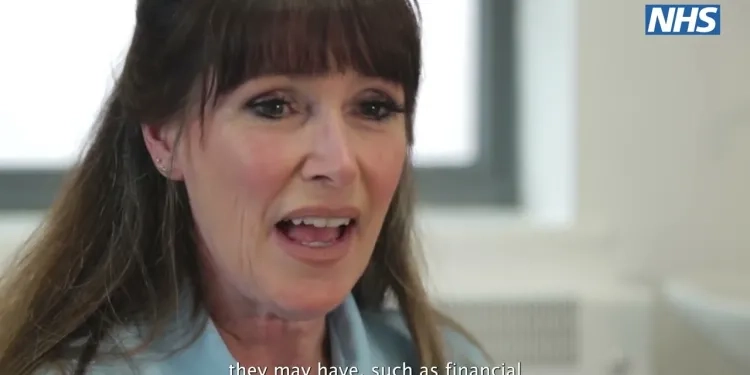
How can a Social Prescribing Link Worker help you? #MeetYourGPTeam
Relevance: 72%
-
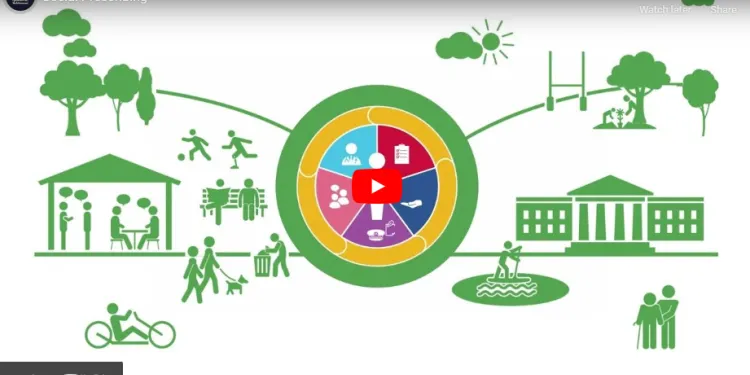
Social Prescribing
Relevance: 65%
-

Social Prescribing
Relevance: 64%
-
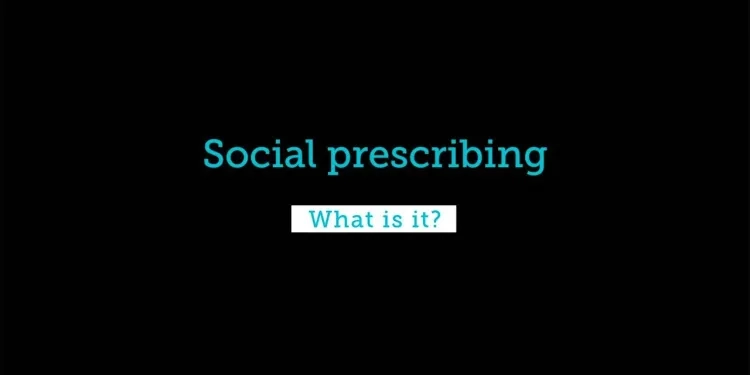
Social prescribing – what is it?
Relevance: 63%
-
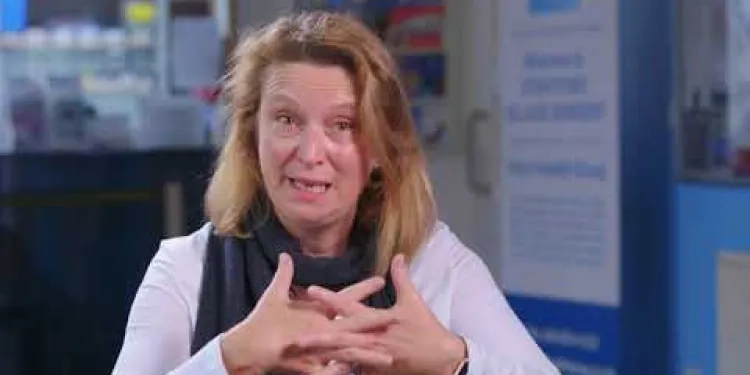
Social prescribing in south east London
Relevance: 59%
-
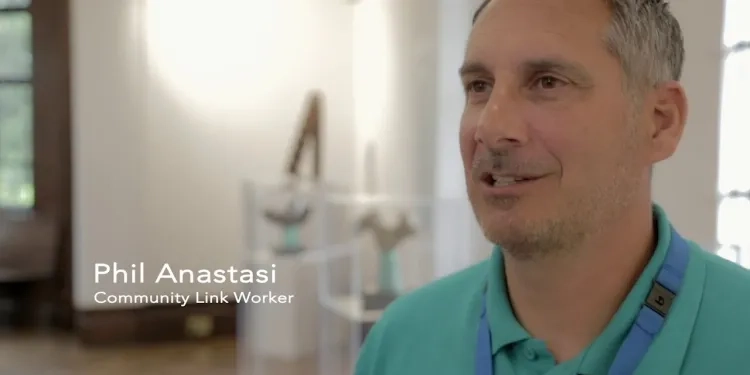
Introducing Social Prescribing - short video
Relevance: 58%
-
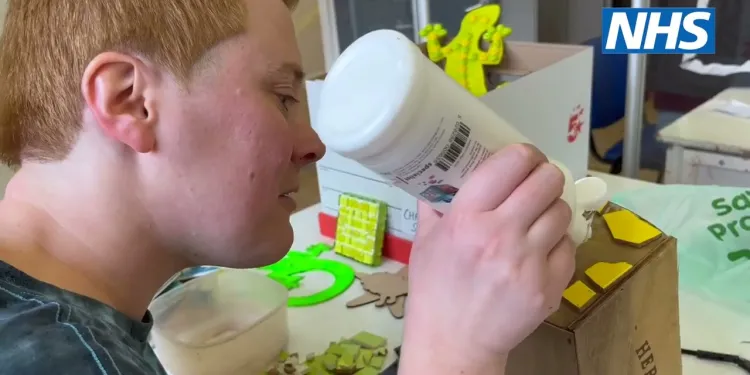
Social Prescribing in Greater Manchester
Relevance: 58%
-
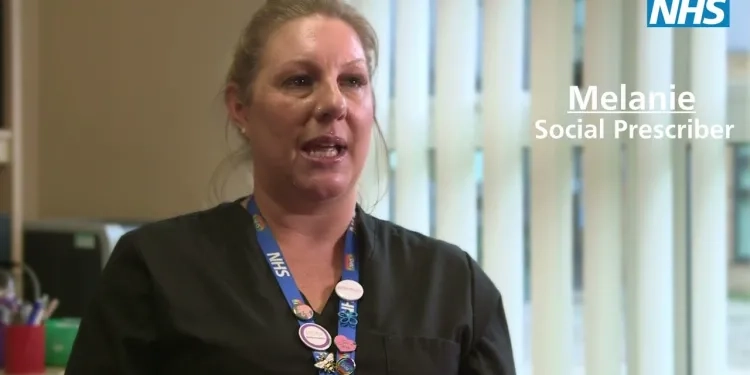
What is a social prescriber?
Relevance: 54%
-
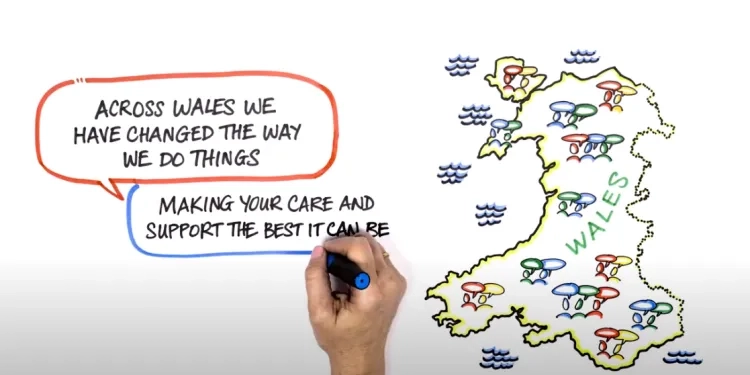
Social Services and Well-being (Wales) Act: Assessments
Relevance: 47%
-
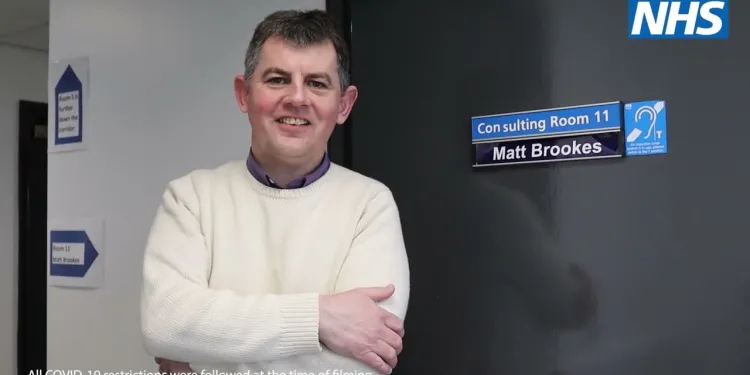
What is a social prescriber, and how do they support general practice?
Relevance: 46%
-
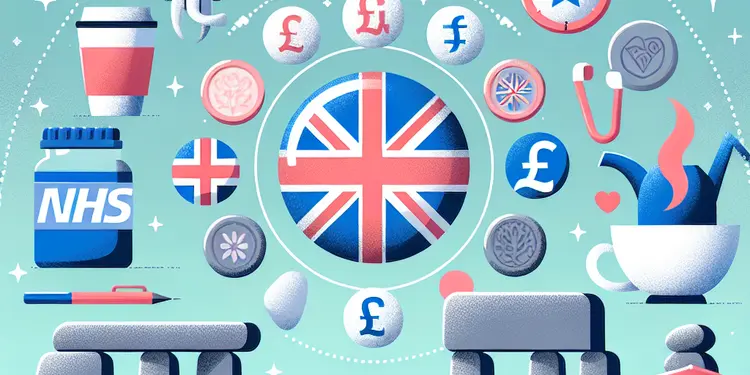
Is health linked to aging?
Relevance: 34%
-
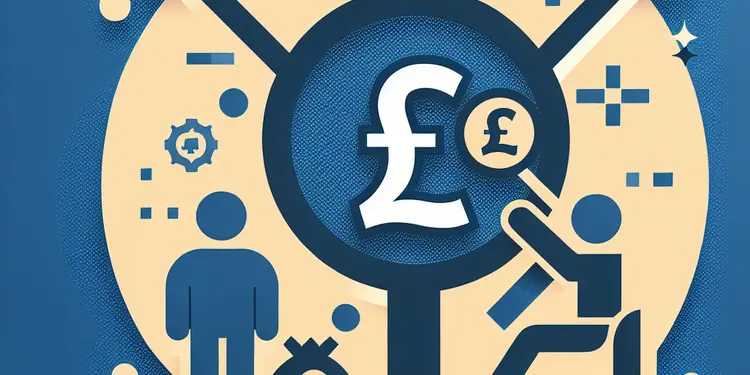
Can primary care support workers access mental health support?
Relevance: 33%
-
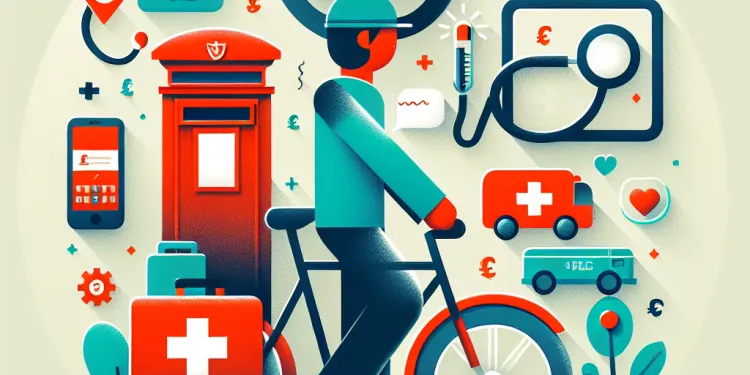
Can I receive health benefits as a gig worker?
Relevance: 32%
-
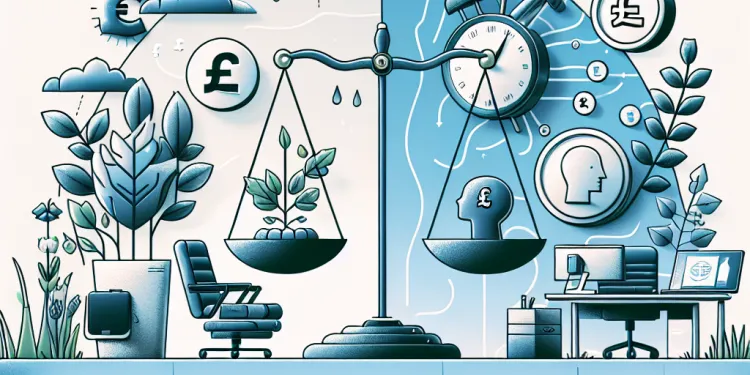
Are UK's Post-Pandemic Work Habits Harming Mental Wellbeing?
Relevance: 32%
-
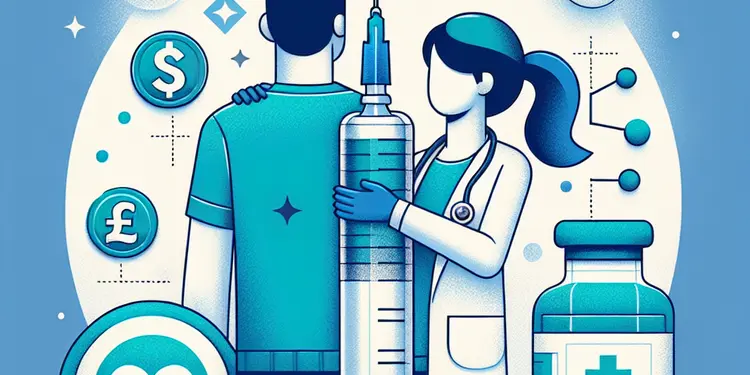
Should health care workers get the meningitis vaccine?
Relevance: 30%
-

Are UK's Post-Pandemic Work Habits Harming Mental Wellbeing?
Relevance: 29%
-

Mental Health Support Services in the UK
Relevance: 29%
-

Lone Workers
Relevance: 28%
-
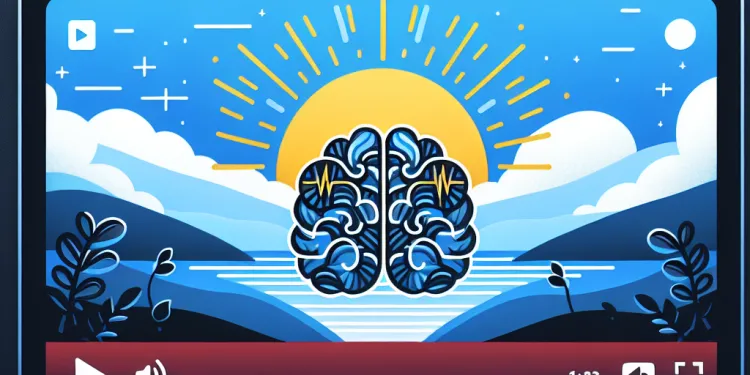
Current Challenges in Youth Mental Health Services
Relevance: 27%
-
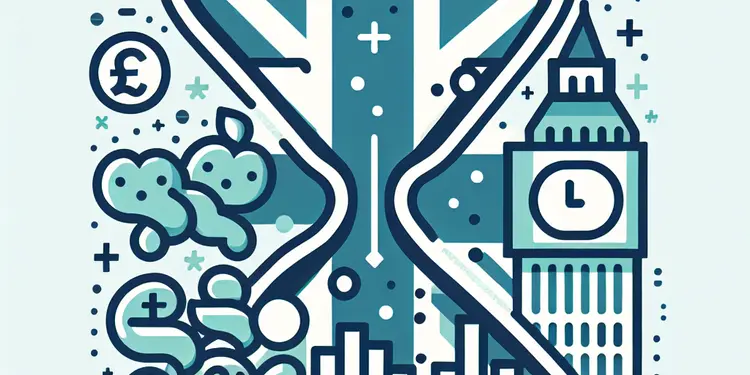
Is gut health linked to the aging process?
Relevance: 27%
-
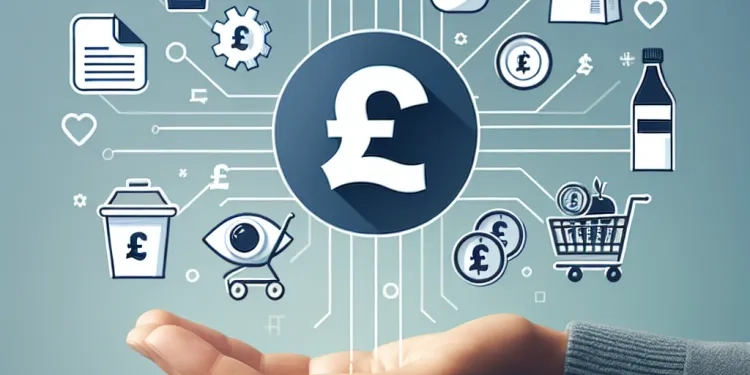
Essential Tips for Mental Health and Well-Being Amidst Rising Living Costs
Relevance: 27%
-
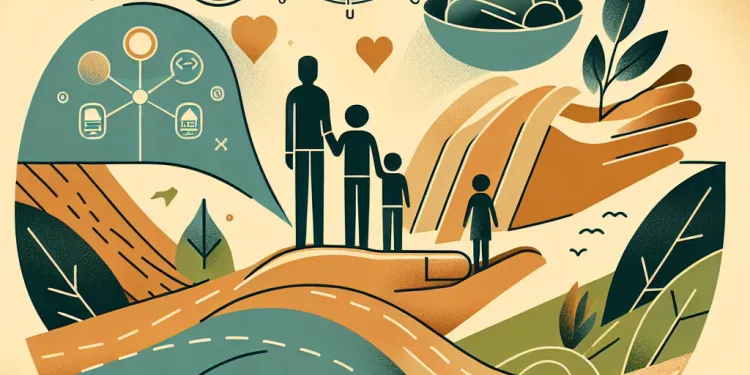
Navigating Mental Health Services for Children and Adolescents
Relevance: 26%
-
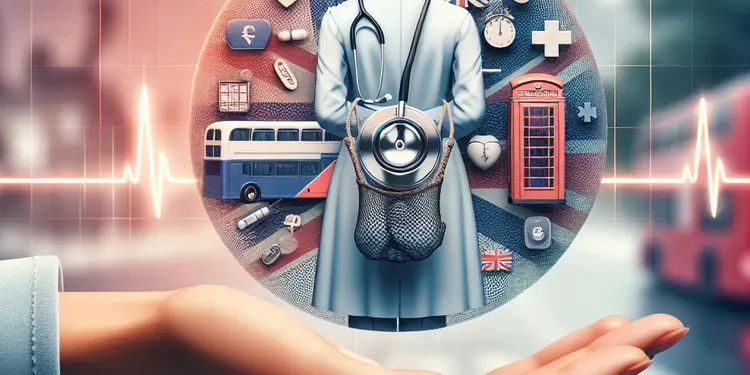
What help is available to primary care support workers?
Relevance: 26%
-
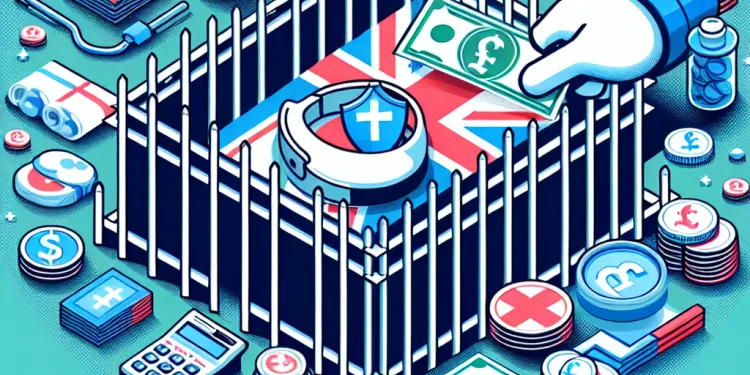
How are health services provided in prison?
Relevance: 25%
-
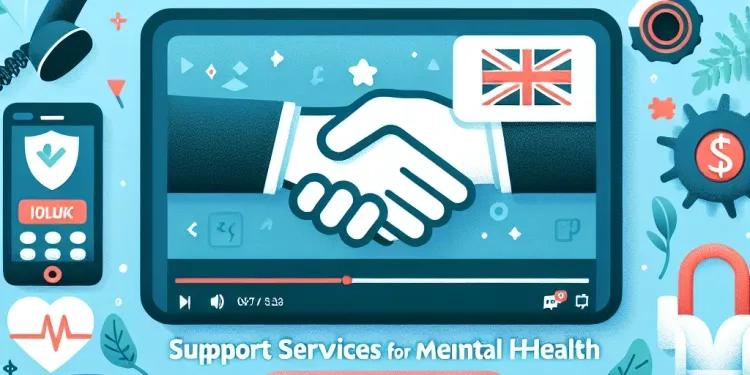
Support Services for Mental Health Amid Economic Uncertainty
Relevance: 25%
-
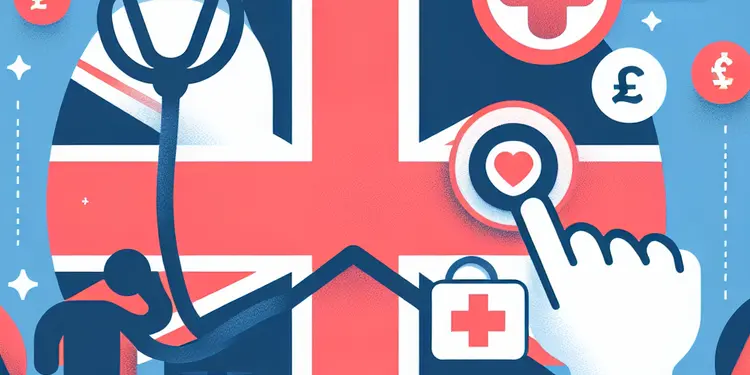
Can community helpers access physical health resources?
Relevance: 25%
-
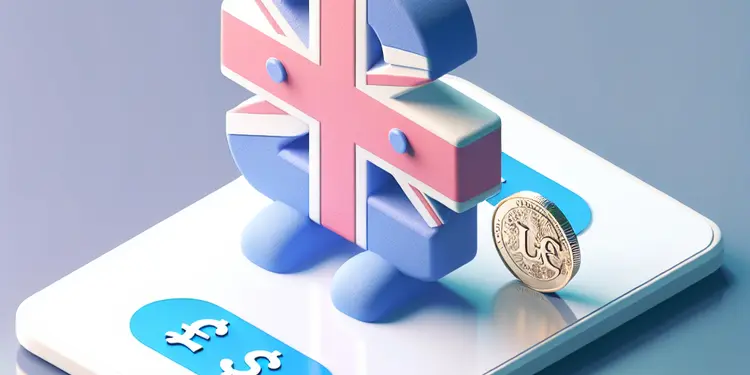
Has the social media ban been successful in improving children's mental health?
Relevance: 25%
-
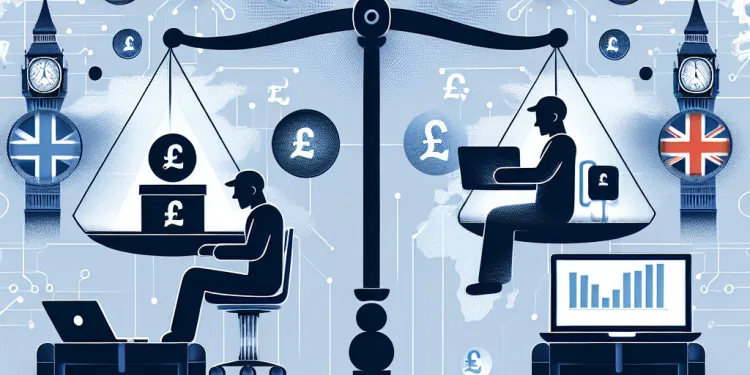
Are gig workers entitled to workers' compensation?
Relevance: 25%
-
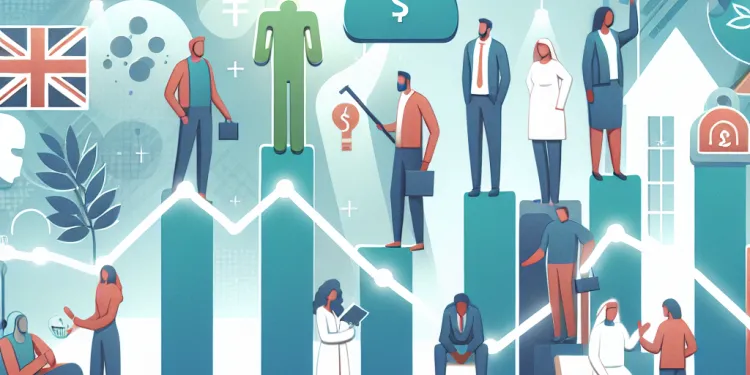
Mental Health Services Struggle to Cope Amid Record Demand
Relevance: 25%
-
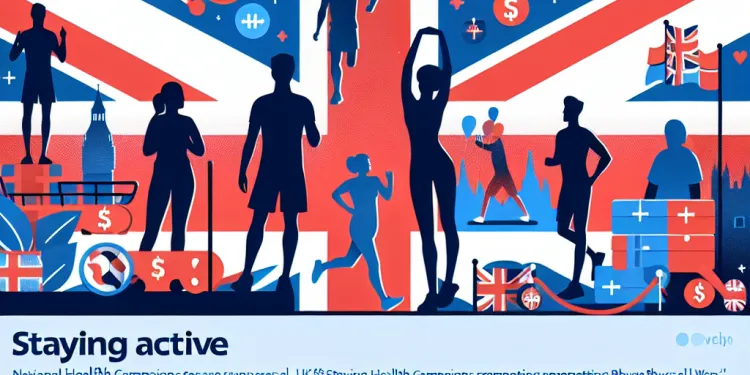
Staying Active: National Health Campaigns Promoting Physical Well-being
Relevance: 25%
-

What healthcare policies should support workers be aware of?
Relevance: 24%
-
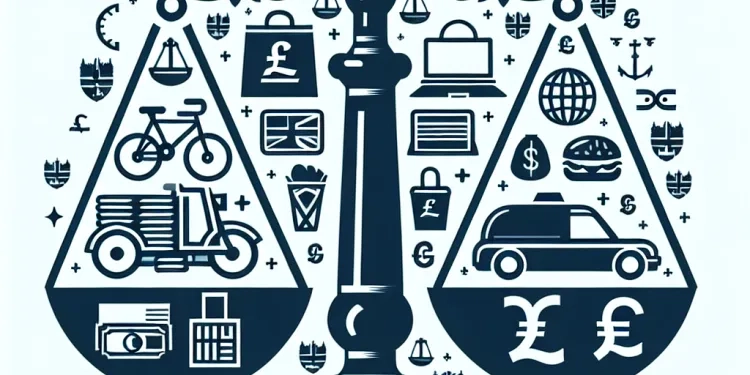
What are my rights as a Gig Worker?
Relevance: 24%
-
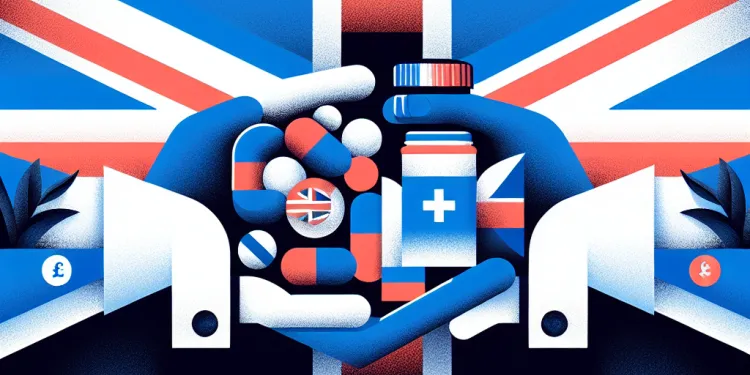
Do chiropractors prescribe medications?
Relevance: 23%
-
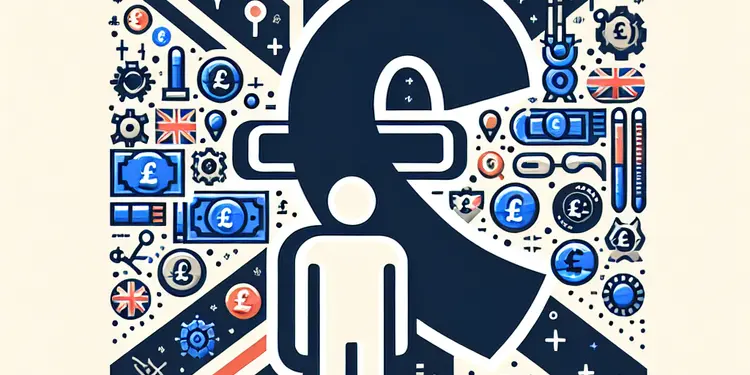
Can support workers participate in decision-making processes?
Relevance: 23%
-

How does the loneliness epidemic impact mental health?
Relevance: 23%
-
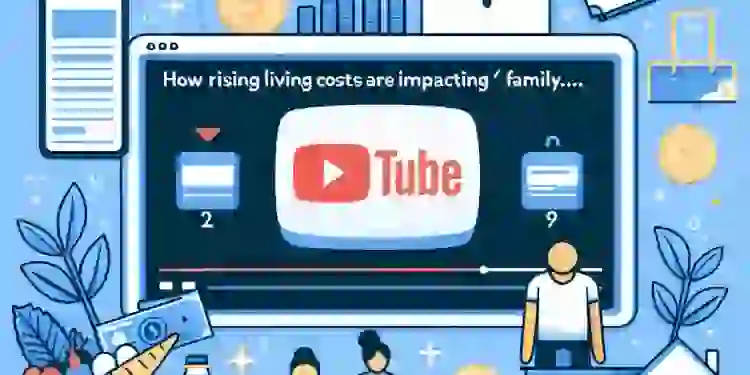
How Rising Living Costs Are Impacting Family Wellbeing
Relevance: 23%
-
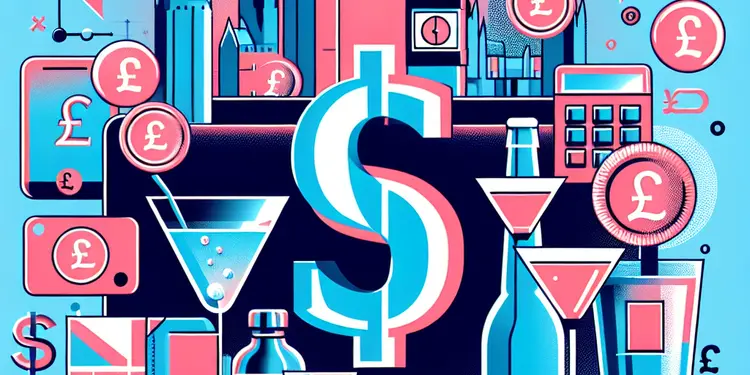
What are the social consequences of binge drinking?
Relevance: 23%
-
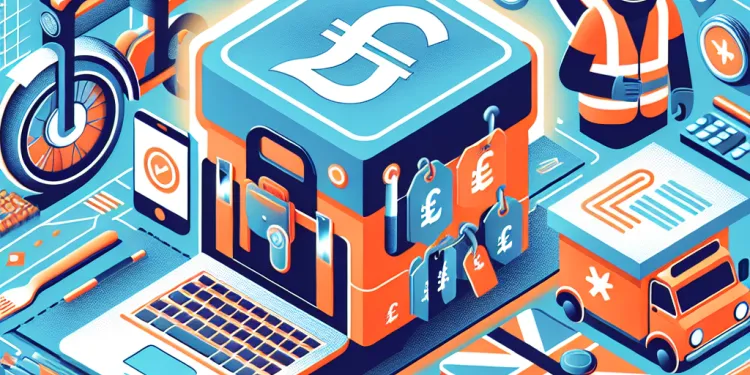
What are my rights regarding workplace safety as a gig worker?
Relevance: 23%
Social Prescribing Link Workers: Enhancing Health and Wellbeing in NHS Surgeries
What is Social Prescribing?
Social prescribing is a revolutionary approach in the healthcare system, aiming to integrate non-clinical interventions into traditional medical care. It empowers patients to take control of their own health and wellbeing by connecting them with community-based services. Social prescribing is designed to address social, emotional, and practical needs that may contribute to physical and mental health issues.
Role of Social Prescribing Link Workers
Social Prescribing Link Workers (SPLWs) are pivotal to the success of social prescribing. These professionals work within NHS Primary Care Networks (PCNs) to provide personalized support to patients. They help individuals find and access local services, ranging from exercise groups and arts activities to volunteering opportunities and social clubs. Link workers serve as a valuable bridge between healthcare services and the community.
Benefits for Patients
The introduction of Social Prescribing Link Workers provides numerous benefits for patients. By addressing the broader determinants of health, such as loneliness, stress, and inactivity, SPLWs contribute to improved overall wellbeing. Patients are often more satisfied with their care, experiencing better health outcomes and lower reliance on traditional medical appointments. This holistic approach is particularly effective for individuals with long-term health conditions, mental health issues, or those who frequently visit their GP.
Impact on NHS Services
Incorporating Social Prescribing Link Workers into NHS surgeries can significantly ease the burden on healthcare services. By tackling the root causes of health issues, SPLWs reduce the demand for primary care and emergency services. This allows GPs and other healthcare professionals to focus on patients with more complex medical needs, enhancing the efficiency of the NHS. Moreover, social prescribing fosters a more cost-effective approach to healthcare by preventing conditions from escalating into more serious problems.
Community Engagement and Collaboration
Social prescribing relies heavily on strong community partnerships. Link workers collaborate with local organizations, charities, and volunteer groups to build a network of support for patients. This fosters a sense of community engagement and collective responsibility for public health. Through these collaborations, social prescribing encourages a more integrated and supportive environment for all individuals.
Conclusion
Social Prescribing Link Workers are transforming healthcare in the United Kingdom by providing a holistic approach to health and wellbeing. Their role in NHS surgeries offers patients personalized, community-focused support, leading to better health outcomes and reduced pressure on traditional medical services. As this innovative model continues to evolve, it holds the promise of a more connected, responsive, and efficient healthcare system for all.
Social Prescribing Link Workers: Helping Health and Wellbeing in NHS Doctor's Offices
What is Social Prescribing?
Social prescribing is a new way to help people feel better. It works alongside regular medical care. It helps people take charge of their health by linking them to local community services. Social prescribing looks at social, emotional, and everyday needs that affect health.
Role of Social Prescribing Link Workers
Social Prescribing Link Workers (SPLWs) are important for making social prescribing work well. They work in NHS doctor’s offices to give special help to people. They guide people to find and use local services, like exercise groups, art activities, volunteering, and social clubs. Link workers connect the dots between healthcare services and the community.
Benefits for Patients
Having Social Prescribing Link Workers brings many good things for people. They help with things like loneliness, stress, and not getting enough exercise. This helps people feel better. Patients often feel happier with their care. They may visit the doctor less. This is especially good for people with long-term health issues, mental health problems, or those who visit their doctor a lot.
Impact on NHS Services
Adding Social Prescribing Link Workers to NHS doctor’s offices can help lower the workload on healthcare services. By finding and fixing the main causes of health problems, SPLWs help reduce the need for doctor visits and emergency services. This means doctors and nurses can focus more on patients with serious medical needs. Social prescribing also helps save money by stopping health problems from becoming worse.
Community Engagement and Collaboration
Social prescribing works by making strong community partnerships. Link workers team up with local groups, charities, and volunteers to create a support system for people. This builds a sense of community and shared care for public health. Working together, social prescribing helps make a more supportive place for everyone.
Conclusion
Social Prescribing Link Workers are changing healthcare in the UK by offering a complete approach to health and wellbeing. Their work in NHS doctor’s offices gives people special help focused on the community, leading to better health and less pressure on regular medical services. As this new way continues to grow, it promises a more connected and better healthcare system for everyone.
Frequently Asked Questions
What is social prescribing?
Social prescribing is a means of enabling GPs, nurses, and other healthcare professionals to refer people to a range of local, non-clinical services to support their health and wellbeing.
Who is a Social Prescribing Link Worker?
A Social Prescribing Link Worker is a professional who works within a primary care setting to connect patients to community groups and statutory services for practical and emotional support.
What services can Social Prescribing Link Workers refer me to?
They can refer you to a wide range of services, such as exercise classes, volunteering opportunities, arts activities, social clubs, housing advice, and support for managing long-term conditions.
How can I access a Social Prescribing Link Worker?
You can be referred by your GP, nurse, or another healthcare professional at your local NHS surgery.
Is social prescribing free?
Yes, social prescribing services are available free of charge within the NHS.
Can social prescribing help with mental health issues?
Yes, social prescribing can help individuals with mental health issues by connecting them to community resources that provide emotional and practical support.
Will a Social Prescribing Link Worker replace my GP?
No, a Social Prescribing Link Worker complements the care provided by your GP by addressing non-medical needs that affect your wellbeing.
How can social prescribing improve my quality of life?
By connecting you to local resources and support services, social prescribing can help reduce social isolation, improve mental health, and provide practical help, thereby enhancing your overall quality of life.
What kind of issues can I discuss with a Social Prescribing Link Worker?
You can discuss a variety of issues such as loneliness, housing problems, financial difficulties, managing long-term conditions, and accessing community activities.
Do I need a referral to see a Social Prescribing Link Worker?
Typically, you would need a referral from a healthcare professional at your NHS surgery, but some services may allow self-referral.
How is the confidentiality of my information maintained?
Social Prescribing Link Workers ensure that all information is kept confidential and shared only with your consent as part of your care plan.
How long is a typical consultation with a Social Prescribing Link Worker?
Initial consultations usually last around 30-60 minutes to fully understand your needs and create a personalised support plan.
Can children and young people access social prescribing?
Yes, social prescribing is available to people of all ages, including children and young people, through appropriate services.
Is social prescribing available in my area?
Social prescribing services are being established across the UK. Check with your local NHS surgery to see if it is available in your area.
Can social prescribing help with addiction issues?
Yes, Social Prescribing Link Workers can connect you with local addiction support services and resources to help you manage and overcome addiction.
What is social prescribing?
Social prescribing is when a doctor or nurse helps you find new activities to feel better.
They might suggest joining a club, exercising, or talking to people.
These activities can make you happier and healthier.
If you need help, you can ask for a support worker.
Social prescribing is a way for doctors and nurses to help people feel better by sending them to local services. These services are not just medical; they can help with many things to improve health and happiness.
What is a Social Prescribing Link Worker?
A Social Prescribing Link Worker is someone who helps you find services and activities in your community to improve your health and happiness. They are friendly and listen to what you need.
They might help you join a local club, find someone to talk to, or learn new skills.
If you need help, ask your doctor about talking to a Link Worker.
You can also use tools like pictures, symbols, or voice apps to understand better and ask for support.
A Social Prescribing Link Worker is a person who helps others. They work in health care, like in a doctor's office. Their job is to connect people to groups in the community that can help them. These groups can give support with things you need for your daily life and for how you feel.
What can Social Prescribing Link Workers help me with?
A Social Prescribing Link Worker can connect you to different kinds of help in your community. They are friendly people who listen and support you.
Here are some things they might help you with:
- Join a group: They can help you find and join fun groups, like sports or art classes.
- Healthy living: They can show you ways to eat healthy or get more exercise.
- Wellbeing support: They can connect you to people who help you feel better if you're feeling sad or worried.
- Benefits and money advice: They can find people who can advise you about money or benefits.
- Learning new skills: They can help you learn new things to get a job or just for fun.
You can ask them for help with other things too! They are there to support you.
They can help you find many different things to do, like exercise classes, volunteering, art activities, social clubs, and advice about places to live. They can also help you if you have an illness that lasts a long time.
How can I meet with a Social Prescribing Link Worker?
Do you want help from a Social Prescribing Link Worker? Here is how you can meet one:
- Ask your doctor: Tell your doctor you want to meet a Link Worker. They can help you.
- Check online: Look for services where you live. You might find places with Link Workers on their website.
- Community centers: Visit a local community center and ask if they have a Link Worker.
If reading is hard, ask someone you trust to help. You can also use tools that read text out loud.
Your doctor, nurse, or another healthcare worker can help you get an appointment.
Do you have to pay for social prescribing?
Social prescribing is free. You do not have to pay money.
If you need help understanding this, you can:
- Ask someone you trust to explain it.
- Use a simple dictionary to check words you do not know.
- Use apps with voice-to-text to read it out loud.
Yes, you can use social prescribing services for free with the NHS.
Can seeing people and doing activities help with feeling good?
Sometimes people might feel sad, worried, or stressed. This is called a mental health issue.
Doing fun things and seeing friendly people can make you feel better. This is called social prescribing.
Here are some things that might help:
- Joining a club, like sports or art.
- Spending time with friends and family.
- Talking to someone who listens and helps, like a counselor.
These activities can make you happy and stop you from feeling lonely.
There are also tools that can help you feel better, like relaxation apps or talking to a helper.
Yes, social prescribing can help people who have mental health problems. It connects them with community resources that give emotional and practical support.
Will a Social Prescribing Link Worker take over from my doctor?
No, a Social Prescribing Link Worker helps you in a different way from your GP. They help with things that are not medical but can still affect how you feel.
How can social prescribing help make my life better?
Social prescribing is a way to get help from people in your community. It can make you feel happier and healthier. Here’s how it works:
- You talk to someone about how you are feeling.
- They suggest activities or groups you can join, like clubs, walks, or classes.
- These activities can help you meet new friends and learn new things.
Social prescribing can help you feel better if you are lonely or stressed. It is not medicine but it can make you feel good.
Here are some ways to try social prescribing:
- Ask your doctor or nurse about it.
- Look for community centers with activities you like.
- Join a local club or group.
Social prescribing can help you feel less alone. It can make you happier and give you useful help. This can make your life better. You can also find local resources and services that can support you.
What can I talk about with a Social Prescribing Link Worker?
You can talk about many things. This includes feeling lonely, having problems with your home, money troubles, dealing with health problems for a long time, and joining activities in your community.
Do I need to ask someone first to see a Social Prescriber?
A Social Prescriber is someone who helps you find support. You might need one if you feel lonely or stressed.
Sometimes, people like doctors or nurses need to say it is okay for you to see a Social Prescriber. This is called a referral.
Ask your doctor or nurse if you need a referral.
You can also ask someone at the doctor's office to help you find out.
If you are unsure, you can call the health center and ask them, too!
Usually, you need to see your doctor to get help. But, sometimes you can ask for help by yourself without seeing the doctor.
How is my information kept private?
We keep your information safe. Here is how:
- Only people who need to see your information can look at it.
- We use special locks, like passwords, to protect it.
- We do not share your information unless you say it’s okay.
If you want help reading, you can:
- Ask a friend or family member to help you.
- Use a computer or phone tool that reads the words out loud.
- Use pictures to help understand the words.
Social Prescribing Link Workers promise to keep your information private. They will only share it if you say it is okay, and it helps with your care plan.
How long does a meeting with a Social Prescribing Link Worker last?
A meeting with a Social Prescribing Link Worker usually takes about 30 to 60 minutes.
Here are some tips to help understand:
- Use a clock or timer to keep track of time.
- Ask if you can have a list of what will happen in the meeting.
- Bring someone with you for support if that helps.
Your first meeting with us takes about 30 to 60 minutes. We ask questions to understand how we can help you. Then, we make a plan just for you.
Can kids and young people use social prescribing?
Yes, kids and young people can use social prescribing.
Social prescribing helps people feel better and happier. It can help you with:
- Finding fun activities near you
- Meeting new friends
- Getting support if you feel sad or worried
If you want to try social prescribing, you can:
- Talk to a teacher or adult you trust
- Ask your doctor for help
They can help you find the right activities and support for you.
Remember, there are people who care and want to help you feel good and enjoy life.
Yes, social prescribing is for everyone. This means kids and young people can use it too.
Can I get social prescribing where I live?
Social prescribing is when a doctor helps you find activities or services that make you feel better. This can include exercise groups, art classes, or support groups.
To find out if you can get social prescribing, you can:
- Ask your doctor or nurse.
- Check with your local health center.
- Look at your local council's website.
These people can help you find services that are nearby.
In the UK, there are new services to help people feel better. These are called social prescribing services. To find out if you can use this service, ask your doctor at your local NHS clinic.
Can social prescribing help with addiction problems?
Social prescribing is when doctors or nurses suggest activities or groups to help people feel better. This can include things like joining a club, taking a class, or getting support from a group.
People who have problems with addiction might feel better with social prescribing. It can help them find new hobbies, make friends, and get support.
Here are some tips that might help:
- Join a support group to talk to others who understand.
- Try new activities to keep your mind busy.
- Meet with a helper who can listen and guide you.
Yes, Social Prescribing Link Workers can help you find local groups and services to support you with addiction.
Useful Links
This website offers general information and is not a substitute for professional advice.
Always seek guidance from qualified professionals.
If you have any medical concerns or need urgent help, contact a healthcare professional or emergency services immediately.
- Ergsy carfully checks the information in the videos we provide here.
- Videos shown by Youtube after a video has completed, have NOT been reviewed by ERGSY.
- To view, click the arrow in centre of video.
- Most of the videos you find here will have subtitles and/or closed captions available.
- You may need to turn these on, and choose your preferred language.
- Go to the video you'd like to watch.
- If closed captions (CC) are available, settings will be visible on the bottom right of the video player.
- To turn on Captions, click settings .
- To turn off Captions, click settings again.
More Items From Ergsy search
-

Social Prescribing Link Workers are part of new health and wellbeing services in NHS surgeries
Relevance: 100%
-

Social prescribing in practice: supporting social prescribing link workers
Relevance: 82%
-

How can a Social Prescribing Link Worker help you? #MeetYourGPTeam
Relevance: 72%
-

Social Prescribing
Relevance: 65%
-

Social Prescribing
Relevance: 64%
-

Social prescribing – what is it?
Relevance: 63%
-

Social prescribing in south east London
Relevance: 59%
-

Introducing Social Prescribing - short video
Relevance: 58%
-

Social Prescribing in Greater Manchester
Relevance: 58%
-

What is a social prescriber?
Relevance: 54%
-

Social Services and Well-being (Wales) Act: Assessments
Relevance: 47%
-

What is a social prescriber, and how do they support general practice?
Relevance: 46%
-

Is health linked to aging?
Relevance: 34%
-

Can primary care support workers access mental health support?
Relevance: 33%
-

Can I receive health benefits as a gig worker?
Relevance: 32%
-

Are UK's Post-Pandemic Work Habits Harming Mental Wellbeing?
Relevance: 32%
-

Should health care workers get the meningitis vaccine?
Relevance: 30%
-

Are UK's Post-Pandemic Work Habits Harming Mental Wellbeing?
Relevance: 29%
-

Mental Health Support Services in the UK
Relevance: 29%
-

Lone Workers
Relevance: 28%
-

Current Challenges in Youth Mental Health Services
Relevance: 27%
-

Is gut health linked to the aging process?
Relevance: 27%
-

Essential Tips for Mental Health and Well-Being Amidst Rising Living Costs
Relevance: 27%
-

Navigating Mental Health Services for Children and Adolescents
Relevance: 26%
-

What help is available to primary care support workers?
Relevance: 26%
-

How are health services provided in prison?
Relevance: 25%
-

Support Services for Mental Health Amid Economic Uncertainty
Relevance: 25%
-

Can community helpers access physical health resources?
Relevance: 25%
-

Has the social media ban been successful in improving children's mental health?
Relevance: 25%
-

Are gig workers entitled to workers' compensation?
Relevance: 25%
-

Mental Health Services Struggle to Cope Amid Record Demand
Relevance: 25%
-

Staying Active: National Health Campaigns Promoting Physical Well-being
Relevance: 25%
-

What healthcare policies should support workers be aware of?
Relevance: 24%
-

What are my rights as a Gig Worker?
Relevance: 24%
-

Do chiropractors prescribe medications?
Relevance: 23%
-

Can support workers participate in decision-making processes?
Relevance: 23%
-

How does the loneliness epidemic impact mental health?
Relevance: 23%
-

How Rising Living Costs Are Impacting Family Wellbeing
Relevance: 23%
-

What are the social consequences of binge drinking?
Relevance: 23%
-

What are my rights regarding workplace safety as a gig worker?
Relevance: 23%


